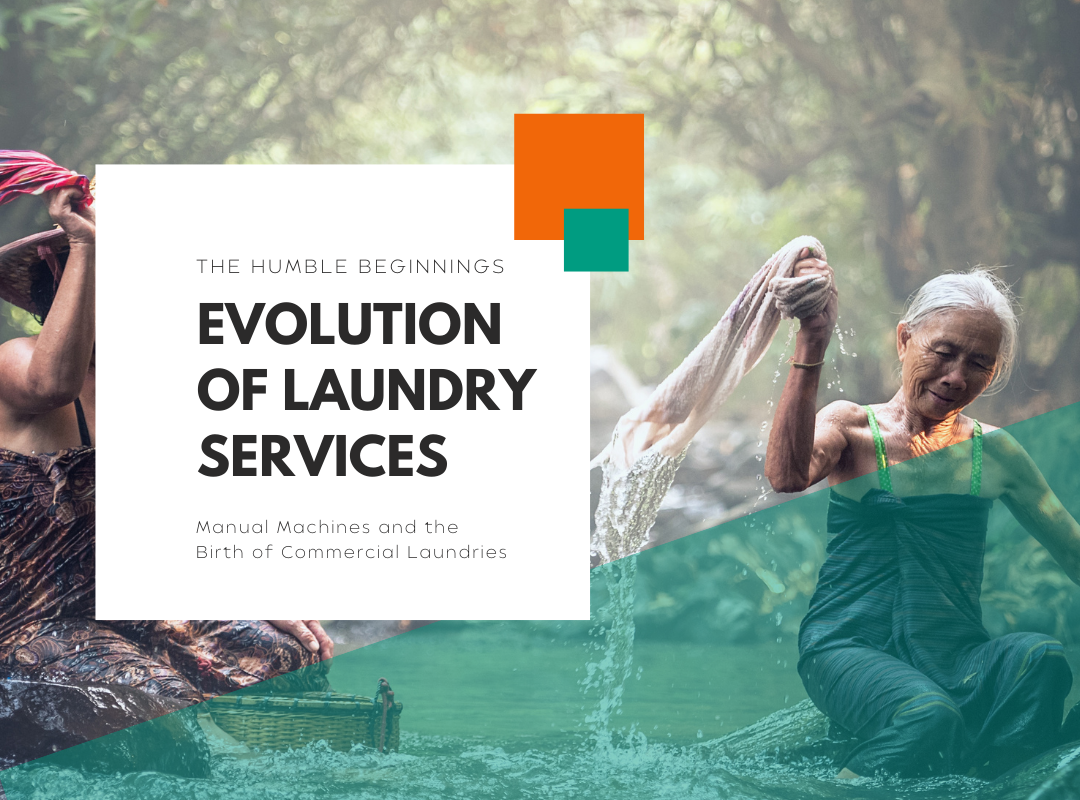Laundry—it’s a task as old as civilization itself. What started as a simple necessity has evolved into a sophisticated industry, deeply intertwined with technological advancements and changing lifestyles. Let’s take a journey through time, exploring how laundry services have transformed from primitive washboards to the modern, eco-friendly practices we see today.
The Humble Beginnings: Washboards and Riverbanks
In ancient times, doing laundry was a labor-intensive chore, often performed by women at the banks of rivers. Clothes were beaten against rocks, scrubbed with sand, and rinsed in flowing water. This method, while effective, was time-consuming and physically demanding. As communities grew, so did the need for more efficient ways to clean garments.
The washboard, a revolutionary invention in the 18th century, became a household staple. Made of wood with a corrugated metal surface, it allowed for more thorough scrubbing of clothes, though it still required significant manual effort. The washboard was the precursor to modern laundry tools, marking the beginning of a slow but steady evolution in laundry practices.
The Birth of the Laundry Industry: From Manual Labor to Mechanization
The Industrial Revolution in the 19th century brought profound changes to many aspects of life, including laundry. The invention of the washing machine in the mid-1800s was a game-changer. Early machines were hand-cranked, reducing the physical strain but still requiring substantial effort. However, they laid the groundwork for future innovations.
As cities expanded and industrialization took hold, commercial laundry services began to emerge. These early laundries were often located in urban areas and catered to busy households and businesses. They offered washing, ironing, and folding services, freeing up time for those who could afford it. While these services were initially a luxury, they gradually became more accessible to the middle class as costs decreased and demand grew.
The 20th Century: Automation and the Rise of Home Laundries
The 20th century witnessed the true revolution in laundry services. The development of fully automatic washing machines and electric dryers in the 1950s transformed laundry from a chore that could take an entire day into a task that could be completed in a couple of hours. These appliances became household essentials, symbolizing modernity and convenience.
With these advancements, home laundries became more common, reducing the need for traditional laundry services. However, commercial laundries adapted by offering specialized services such as dry cleaning, which became popular for delicate fabrics and garments requiring extra care. The laundry industry continued to grow, with laundromats becoming a fixture in urban life, providing affordable self-service options.
Modern-Day Laundry: Technology Meets Sustainability
As we move into the 21st century, the laundry industry has embraced both technology and sustainability. Today’s washing machines are marvels of engineering, equipped with features like programmable cycles, energy-efficient modes, and smart technology that allows you to control your laundry from your smartphone.
But perhaps the most significant shift in recent years has been towards eco-friendly practices. With growing awareness of environmental issues, both consumers and laundry service providers are seeking ways to reduce their carbon footprint. High-efficiency washing machines use less water and energy, while eco-friendly detergents minimize chemical runoff. Many laundries have adopted green practices, using biodegradable products, recycling water, and harnessing solar energy to power their operations.
Moreover, modern laundry services have become more personalized and convenient than ever. With the rise of on-demand services, you can now schedule a pickup and have your clothes washed, dried, and delivered back to your door without ever leaving your home. These services often offer specialized care for different fabrics, ensuring your clothes are treated with the utmost care.
The Future of Laundry Services: Innovation and Beyond
The laundry industry shows no signs of slowing down. Innovations like waterless washing machines, using ultrasonic waves to clean clothes, and the use of artificial intelligence to optimize washing cycles are just a few examples of where the industry is headed. Sustainability will continue to play a crucial role, with more focus on reducing waste, conserving water, and lowering energy consumption.
As laundry services evolve, they will continue to adapt to the needs of modern life, offering greater convenience, efficiency, and care for both our clothes and the planet.
How Super Clean Laundry Stays Ahead
At Super Clean Laundry, we’re proud to be part of this rich history, blending tradition with innovation to offer you the best in laundry care. We understand that laundry is more than just a chore—it’s about preserving the quality of your clothes and contributing to a sustainable future.
Our services are designed to make your life easier while minimizing our environmental impact. We use state-of-the-art equipment and eco-friendly detergents to ensure your clothes are cleaned to perfection without harming the planet. Whether you’re looking for a quick wash, specialized fabric care, or just want to save time, Super Clean Laundry has you covered.
We’ve come a long way from washboards and riverbanks, and at Super Clean Laundry, we’re committed to continuing this evolution, providing you with the most advanced and eco-conscious laundry services available. Your clothes deserve the best care, and so does our planet—let’s take care of both together.
